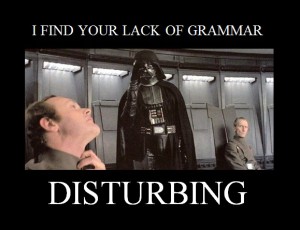podcast 328 – 13 bad reasons to switch from trinitarian to unitarian
Many are moving from a trinitarian understanding to a unitarian understanding of Christian theology. But not all of their reasons are good reasons…
Many are moving from a trinitarian understanding to a unitarian understanding of Christian theology. But not all of their reasons are good reasons…
A trinitarian apologist changes his mind.
 In the recent and ongoing series, I have been showing that famous early “fathers” are not, contrary to popular accounts, trinitarians at all, once we carefully define the term. They are unitarians, again, carefully defining the term.
In the recent and ongoing series, I have been showing that famous early “fathers” are not, contrary to popular accounts, trinitarians at all, once we carefully define the term. They are unitarians, again, carefully defining the term.
But these recent comments by reader “Villanovanus” got me thinking.
He finds it outrageous that I call people like Irenaeus and Origen “unitarians,” even though I also call them “subordinationists.” Isn’t a subordinationist by definition a trinitarian? (When one reads the trinitarian authors of histories of theology, they are usually a little more modest, saying that these folks are sort of, kind of, maybe trinitarians, if not good ones, or fully developed ones, etc.) Am I not grammatically challenged, or perversely unwilling to look up terms in a dictionary? If a “subordinationist” is by definition a trinitarian, then “subordinationist unitarian” is a contradiction in terms.
He cites a number of dictionary type definitions of “subordinationism”, e.g.
The second definition is too narrow. But making “subordinationism” Read More »“Subordinationism”
Here’s a later (partisan, 20th century Unitarian) account of one of several trinitarian controversies in early modern England, started by men within the Church of England who would have considered themselves Christians and trinitarians, but who rejected mainstream medieval trinitarian thinking, especially as embodied in the “Athanasian” creed. During this controversy, these dissenters started using the term “Unitarian”, as they disliked being tarred as “Socinians“,… Read More »Nothing New Under the Sun – Part 2
 Last time I offered a definition of the concept of a trinitarian.
Last time I offered a definition of the concept of a trinitarian.
This time, I will try to define the concept of a unitarian.
Many definitions of this concept are unacceptably polemical. It is unacceptable to define a unitarian as an anti-trinitarian. This violates requirements 3 and 5 – it doesn’t tell us what a unitarian is, but only what a unitarian is against. And this is part of a common slashing rhetorical strategy which I have recently mentioned. For the same reasons we must reject defining the concept unitarian as one who “denies the Trinity” or “has heretical beliefs about the Trinity,” etc. Equally, it is unacceptable to define a unitarian as one who holds the correct or biblical view about Jesus and God. Whether or not that’s so, it’s trying to sneak an argument for a thesis into a pseudo-definition of that thesis.
One common definition is,
Definition 1: someone who believes in exactly one unipersonal God.
I think this is on the right track, but the term “unipersonal” is obscure, and so this definition violates requirement 6 (and possibly also 3).
I have been working with this definition of the concept:
Definition 2: someone who believes that the one God just is (is numerically identical to) the Father.
I now think that this isn’t quite right.
First the definition is arguably too narrow. Read More »Defining the concept of a unitarian
Do we find trinitarian theologies in early Christian authors?
What does one do when the search for truth clashes with one’s need to fit in?
“The Gospel is Trinitarian.” What does this mean, and is it both true and non-trivial?
A new debate book with four analytic theologians on clashing views of the Trinity.
Exploring a new argument against any sort of catholic Trinity theory.
In this less biographical episode, Sir Anthony and I discuss various Christian mistakes: obsession with Hebrew names for God and for Jesus, keeping kosher food laws and Jewish holidays, the doctrine of tithing, and even the avoidance of doctors (as if that showed a lack of faith in God). Another mistake was discarding the simple, messianic gospel preached by Jesus, including his Jewish theology of one God,… Read More »podcast 45 – Sir Anthony Buzzard on Christian mistakes
Continuing from last time, on the multiplicity of interpretations of the old catholic formulas – quoting David Waltz, our friend Annoyed Pinoy comments on the diversity of Trinity theories: [Waltz:] Now, when we look at “the” Evangelical doctrine of the Trinty, one is forced to conclude that it is “doctrines”, not “the doctrine”, for the following are but a few examples of the different forms… Read More »On a Rebuttal to my “How Trinity theories conflict with the New Testament” – Part 2

The more you think about hard stuff, the more opinions you get. I’ve taught philosophy of religion, modern philosophy, logic, and metaphysics courses, and so I have some fairly developed views. Based on theoretical (and non-theological considerations), here are some things I don’t believe in, because I think they’re impossible:Read More »Dealing with Apparent Contradictions: Part 11 – One last problem for Rational Reinterpretation
Some responses and a debate challenge.
A question from the Facebook group a few weeks ago: …One model of the Trinity that I’ve heard articulated–call it “paterderivationism”–says that the way in which the Father, the Son, and the Spirit are homoousios is the same way in which Caesar, Pompey, and Crassus may be called “homoousios”: they share the same kind of nature, though… not the same instance of that nature. According to… Read More »“paterderivationism,” monotheism, and “mono-theos-ism”
On March 29, I debated Catholic apologist William Albrecht on whether or not Tertullian was a trinitarian. In this episode, our opening statements, and rebuttals, slightly edited (“cleaned up”) from the original audio (“in studio” for me, unfortunately, just over the internet for his side – but I did my best to make the whole thing listenable.) You can also listen to this episode on… Read More »podcast 33 – Albrecht vs. Tuggy debate – Was Tertullian a trinitarian? Part 1
Does the gospel of Mark hint that Jesus is Yahweh in the flesh?
If only trinitarian scholars majored in consistent, intelligible, fully informed answers!
How Trinity theories cause a “blind spot” when reading the New Testament.